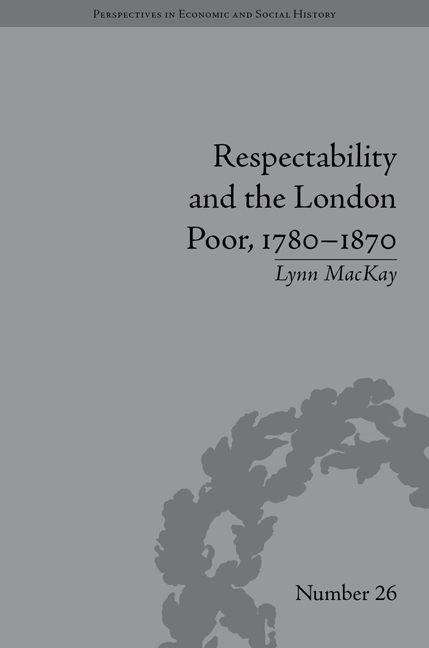5 - Different Temporalities
Summary
Having explored the lineaments of customary culture and the factors encouraging its retention – the spatiality of central neighbourhoods, employment in these areas, and the formal assistance available in times of need – it is time, finally, to focus on the ways in which various sectors of plebeian London adopted, adapted or resisted the new discourses of individualized initiative and responsibility. To this end, this chapter explores two case studies, based first on an autobiography written by a woman whose family was within the skilled sector, and second on the group that came to define disreputable plebeian life: the costermongers. In the course of doing so, the chapter attempts to address the concern expressed at the outset that a focus on factors tending to encourage certain patterns of thought and behaviour, while discouraging others, too easily segues into binary opposites: customary v. modern, collective v. individual. As pointed out in the Introduction, respectability was complicated: those who more willingly embraced the new notions being bruited about in the nineteenth century often did so on their own terms. Others who were more resistant clung tenaciously, often with good reason, to customary practices. Clearly different sectors of plebeian London were acting according to different temporalities. This chapter will examine the ways in which these impulses played out in the lives of a number of plebeian women and men.
- Type
- Chapter
- Information
- Respectability and the London Poor, 1780–1870The Value of Virtue, pp. 135 - 154Publisher: Pickering & ChattoFirst published in: 2014



